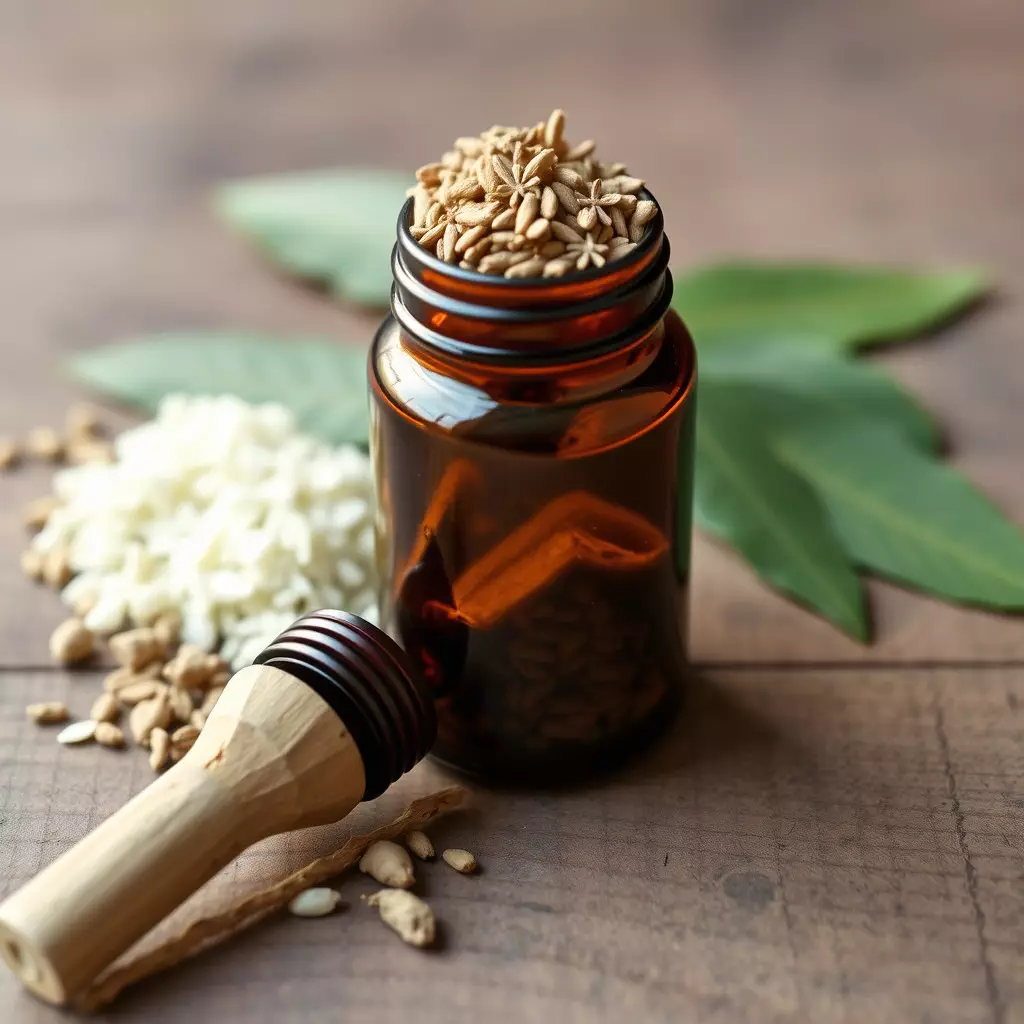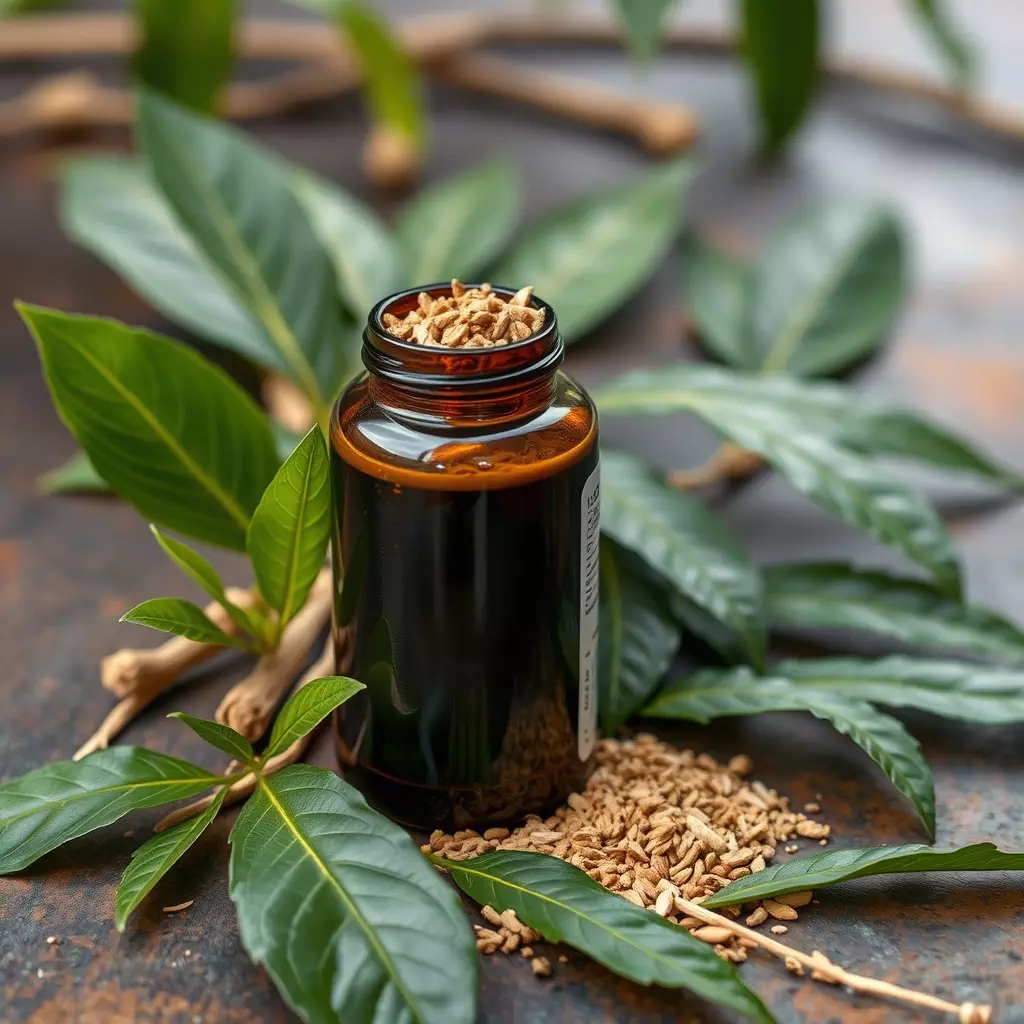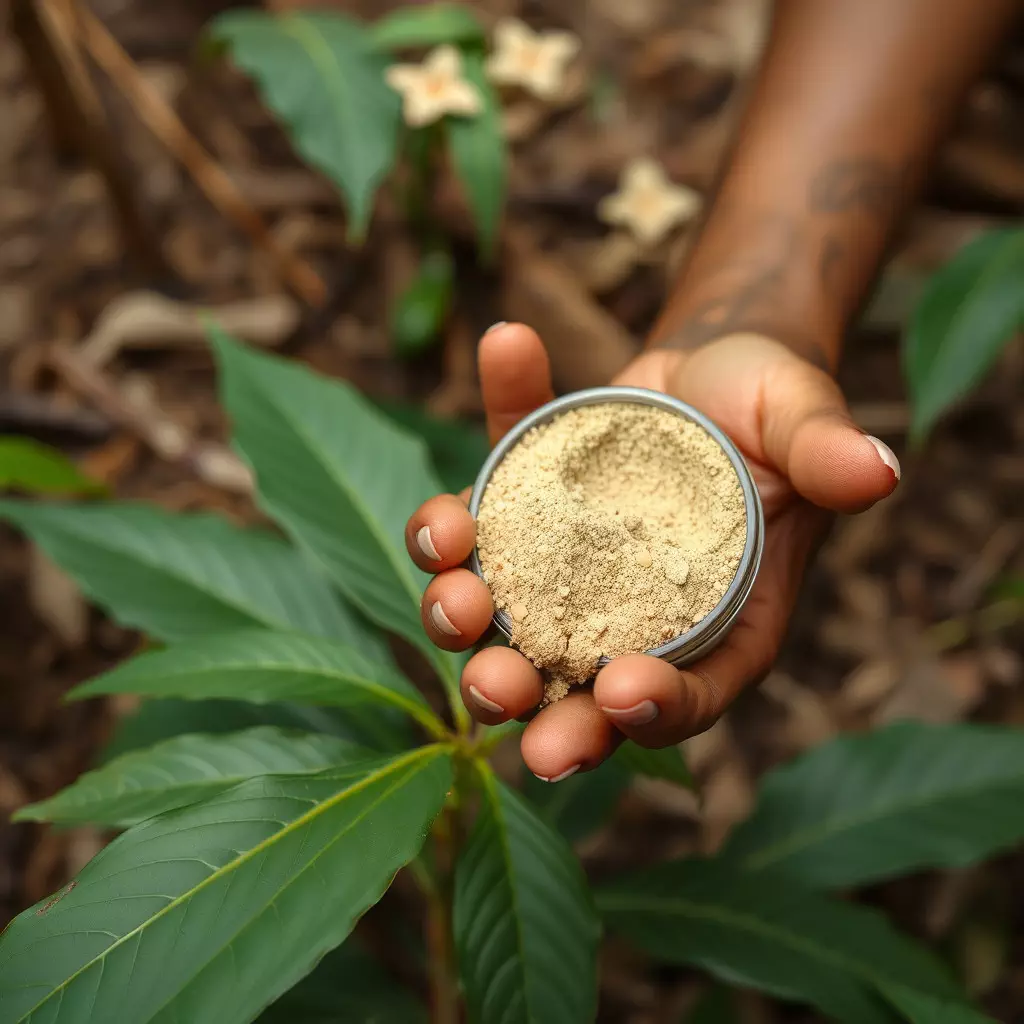Thai Kratom Powder, derived from the Mitragyna speciosa tree, is a natural supplement with alkaloids like mitragynine and 7-hydroxymitragynine that can influence opioid receptors, offering various effects from stimulant to sedative. It's used by some for its reported benefits in energy, focus, pain relief, and stress management. However, the efficacy and long-term safety of Thai Kratom are still under research. A key consideration for military personnel is that kratom is not explicitly banned but can cause positive results on opioid drug tests, which could have career implications due to its psychoactive properties and potential for dependency. This means service members must be aware of the legal status of kratom, which varies by state and within military regulations, necessitating informed decision-making and adherence to evolving policies to ensure compliance and maintain their service commitments. It's important for those in the armed forces to understand that any use of kratom may lead to drug test positives and to seek guidance from healthcare professionals before considering its use.
Thai Kratom Powder has emerged as a subject of intrigue and debate, celebrated for its purported health benefits and scrutinized within regulatory circles. This article delves into the potency and effects of this botanical substance, shedding light on how it influences well-being and its growing presence in various lifestyle choices. As we explore the nuances of Thai Kratom Powder, a significant aspect to uncover is its role within military testing policies—a topic that raises questions about the legal and ethical considerations surrounding its use. Does the military test for kratom? This investigation aims to clarify the stance of defense departments on this natural product, providing readers with a comprehensive understanding of Thai Kratom Powder’s multifaceted impact.
- Unraveling the Potency of Thai Kratom Powder: A Comprehensive Overview
- Thai Kratom Powder and Its Impact on Well-being: Effects and Usage
- The Legal and Ethical Landscape: Military Testing Policies for Kratom Use
Unraveling the Potency of Thai Kratom Powder: A Comprehensive Overview

Thai Kratom Powder, hailing from the Mitragyna speciosa tree native to Thailand, has garnered significant attention for its various effects and potential benefits. The alkaloids present in this powder, such as mitragynine and 7-hydroxymitragynine, are believed to contribute to its unique properties. These compounds interact with the body’s opioid receptors, which may explain the reported analgesic, stimulant, and sedative effects. Users often report a nuanced response depending on the dosage, with lower amounts promoting energy and focus, while higher doses can induce relaxation and pain relief. The potency of Thai Kratom is a subject of ongoing research, as scientists strive to understand its pharmacological impact fully.
When discussing the potency of Thai Kratom Powder, it’s notable that users and researchers alike are interested in how this substance compares to others on the market. The strain’s efficacy is often attributed to the specific environmental conditions and cultivation practices of its native lands. In terms of regulatory oversight, questions arise regarding military drug testing policies. Does the military test for kratom? This is a pertinent inquiry for individuals serving in the armed forces who may be interested in the substance. It’s important for potential users to be aware that kratom is not explicitly listed as a prohibited substance in all military bodies, but its presence could lead to positive results on standard drug tests designed to detect opioids. This ambiguity underscores the need for further clarification from military health and legal advisories. Users considering the use of Thai Kratom Powder should be cognizant of this aspect and seek guidance accordingly.
Thai Kratom Powder and Its Impact on Well-being: Effects and Usage

Thai Kratom Powder, derived from the leaves of Mitragyna speciosa trees native to Thailand, has been a subject of interest due to its potential well-being effects. This potent herbal supplement is known for its stimulating and sedative properties, depending on the dose ingested. The alkaloids present in Thai Kratom, particularly mitragynine and 7-hydroxymitragynine, interact with various neurotransmitter systems within the brain. This interaction can lead to a range of effects, including mood enhancement, pain relief, increased energy levels, and improved focus. Users often consume Thai Kratom Powder to manage chronic pain, alleviate fatigue, and cope with stress and anxiety. Its influence on well-being is multifaceted, making it a popular choice for those seeking natural alternatives to prescription medications.
When considering the impact of Thai Kratom Powder on an individual’s health and wellness, it’s important to be aware of its potential effects and usage guidelines. While some users report positive outcomes, others may experience adverse reactions. It’s crucial to approach its use with caution, especially given the lack of long-term studies on its safety and efficacy. Additionally, for individuals subject to drug testing, such as those in the military, the presence of kratom in system screens can lead to positive results. The military’s stance on kratom is clear, considering it a drug of concern due to its psychoactive nature and potential for abuse or dependency. Therefore, anyone considering the use of Thai Kratom Powder should be fully informed of these considerations and the legal implications within their context. Users are advised to consult healthcare professionals before integrating Thai Kratom into their wellness regimen, particularly if they are under any form of monitoring or have pre-existing health conditions.
The Legal and Ethical Landscape: Military Testing Policies for Kratom Use

The use of natural supplements, including Kratom, has been a subject of interest and concern within the military’s testing policies. Kratom, derived from the leaves of Mitragyna speciosa, has gained attention for its potential effects on pain relief, energy levels, and mood enhancement. As such, understanding the military’s stance on Kratom is crucial for service members who may be using it for various reasons. The Department of Defense (DoD) periodically updates its list of prohibited substances based on evolving drug policies. While Kratom is not explicitly listed as a banned substance in all branches, the military’s testing policies are broad and can encompass substances that affect performance or pose health risks. The legality of Kratom varies across states within the United States, with some classifying it as a controlled substance due to its opioid-like properties. This variability creates a complex legal landscape that service members must navigate. Ethical considerations also come into play; the use of Kratom raises questions about informed consent and the potential for dependency or adverse effects on an individual’s duty performance. As a result, military personnel considering the use of Kratom should be aware that its detection in drug tests is possible, and its status within the military may change with updates to policy or legislation. It is imperative for individuals under military jurisdiction to stay informed about the evolving legal landscape concerning Kratom to ensure compliance with the military’s testing policies and maintain their service obligations.
Thai Kratom Powder has emerged as a subject of considerable interest due to its varied effects on well-being and the complexity surrounding its legal status, particularly in relation to military testing policies. This article has delved into the potency of Thai Kratom, exploring its potential benefits and how it is used. It has also shed light on the impact of its consumption on individuals’ health and the broader implications of its presence in various regulatory frameworks, including military testing for kratom use. As the discourse continues to evolve, it remains imperative for both researchers and policymakers to closely examine the evidence to inform balanced decisions that consider the well-being of individuals as well as the ethical and legal dimensions of its use within the military and beyond.






